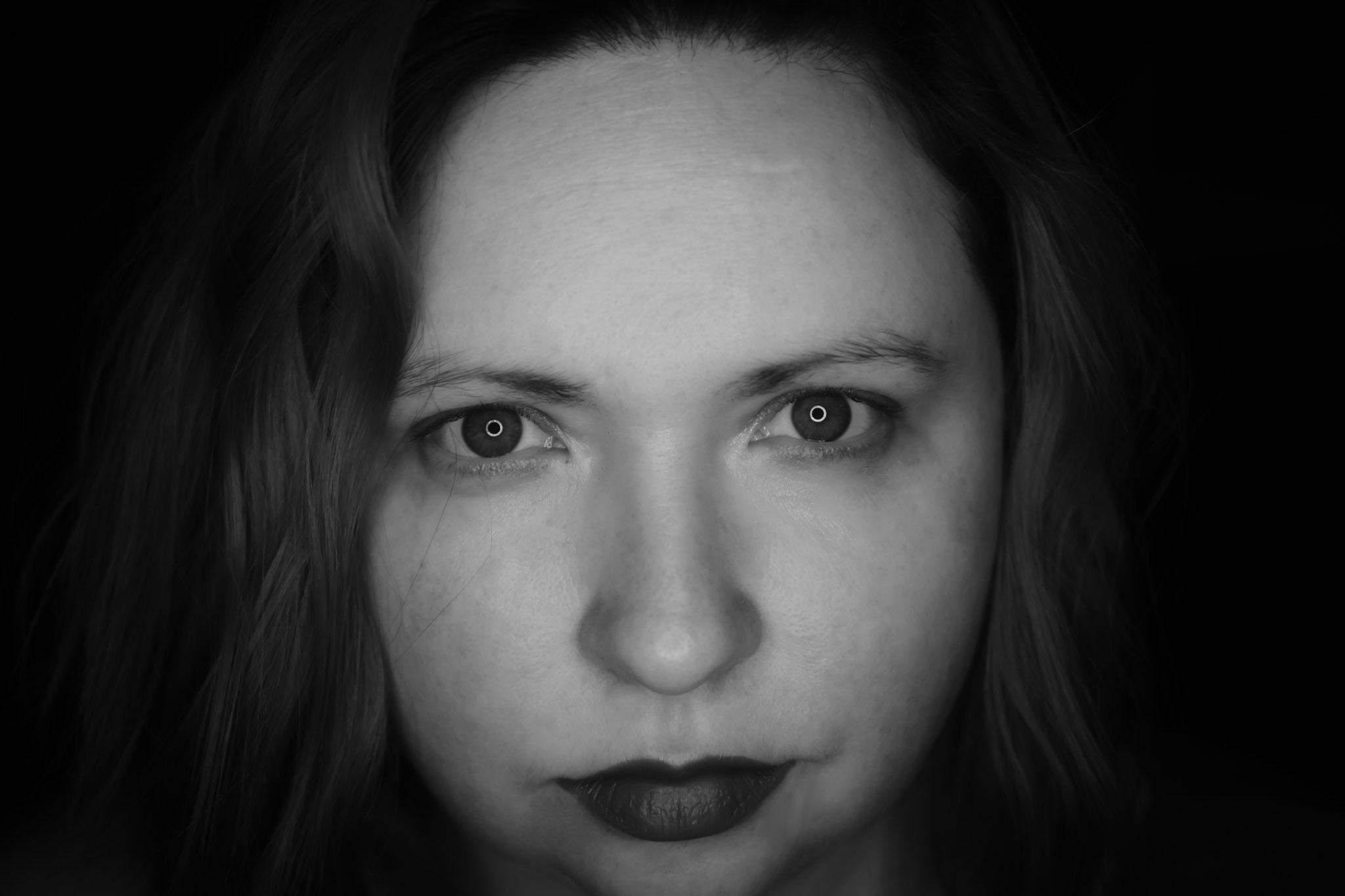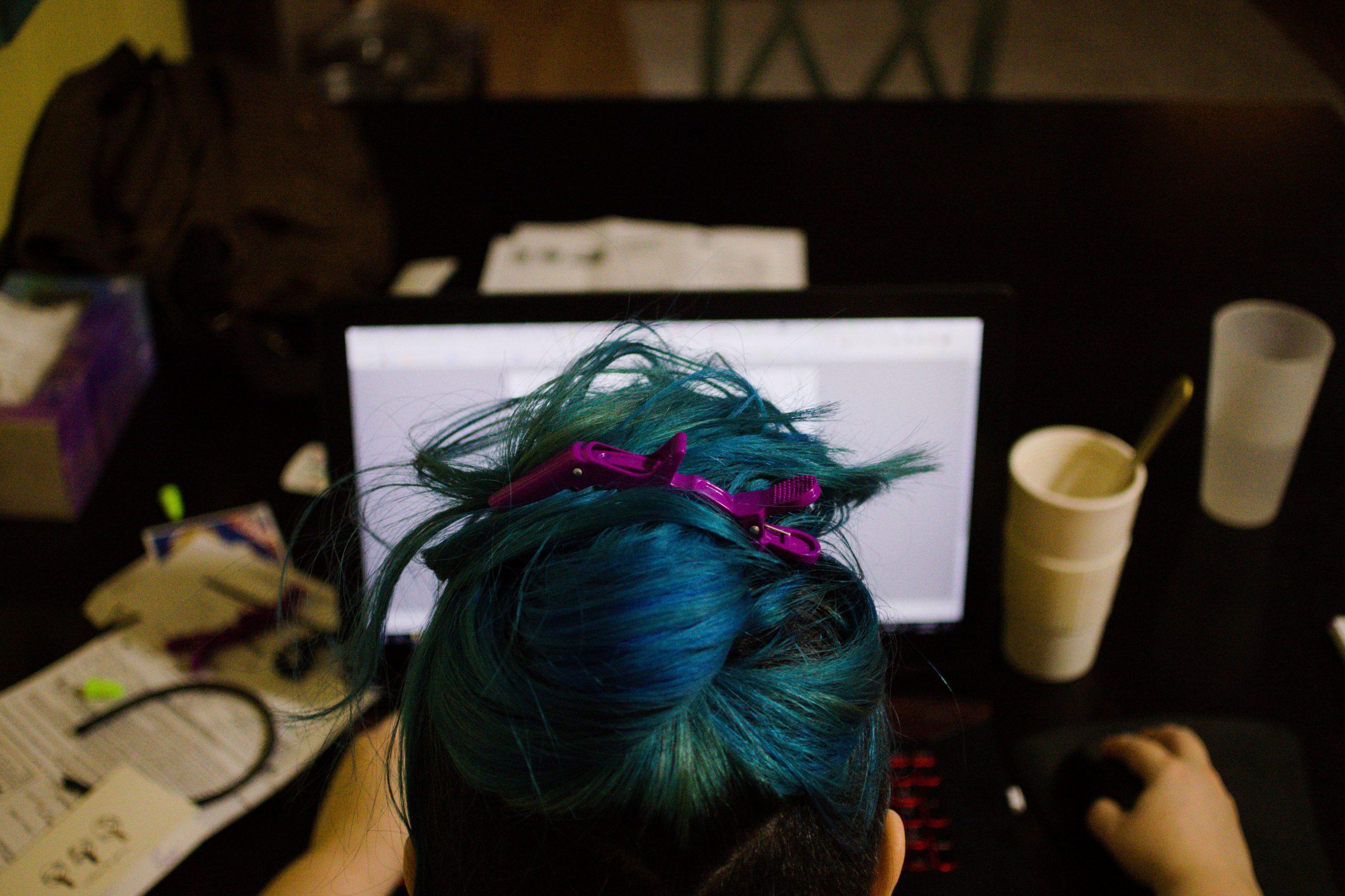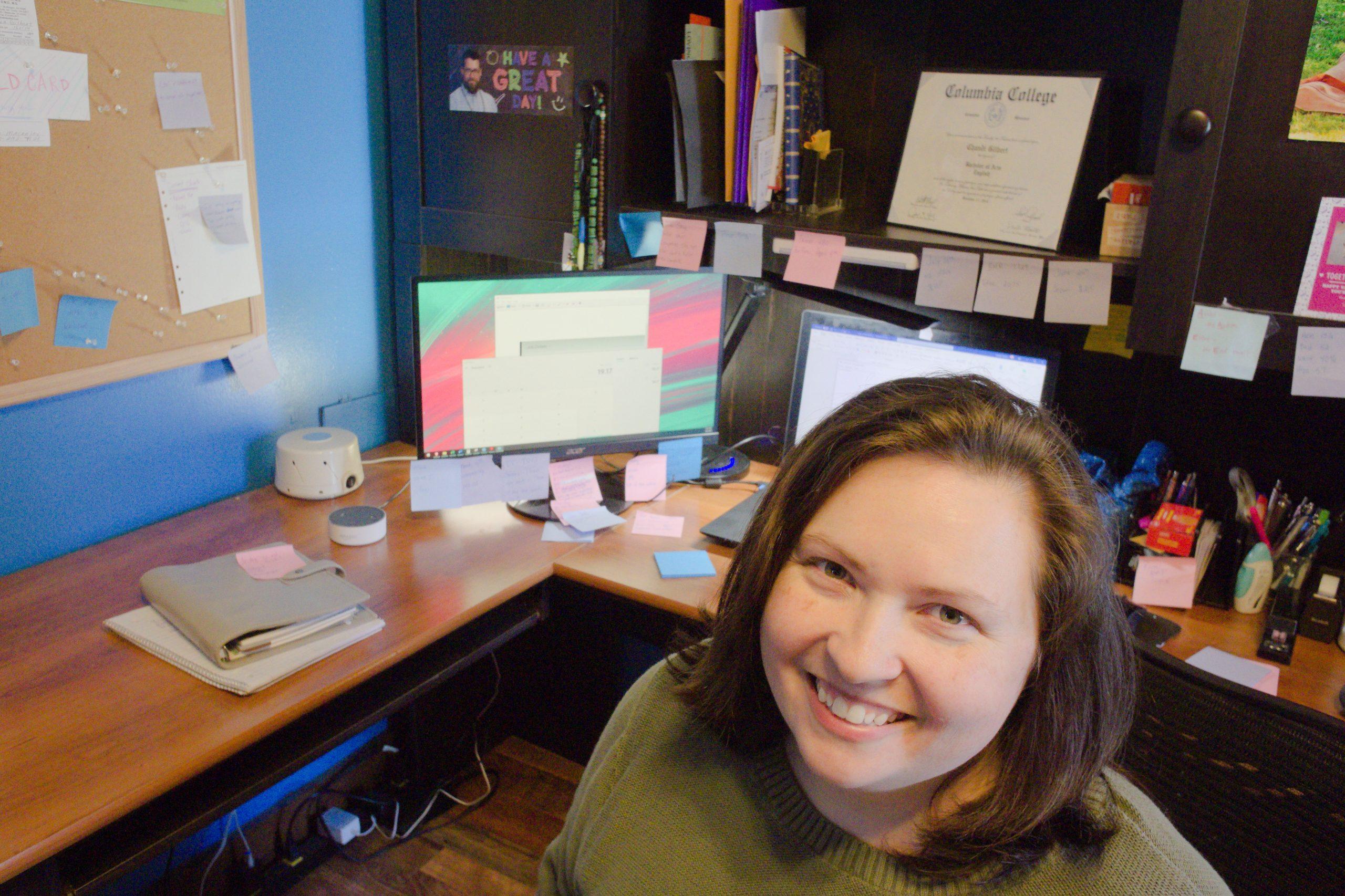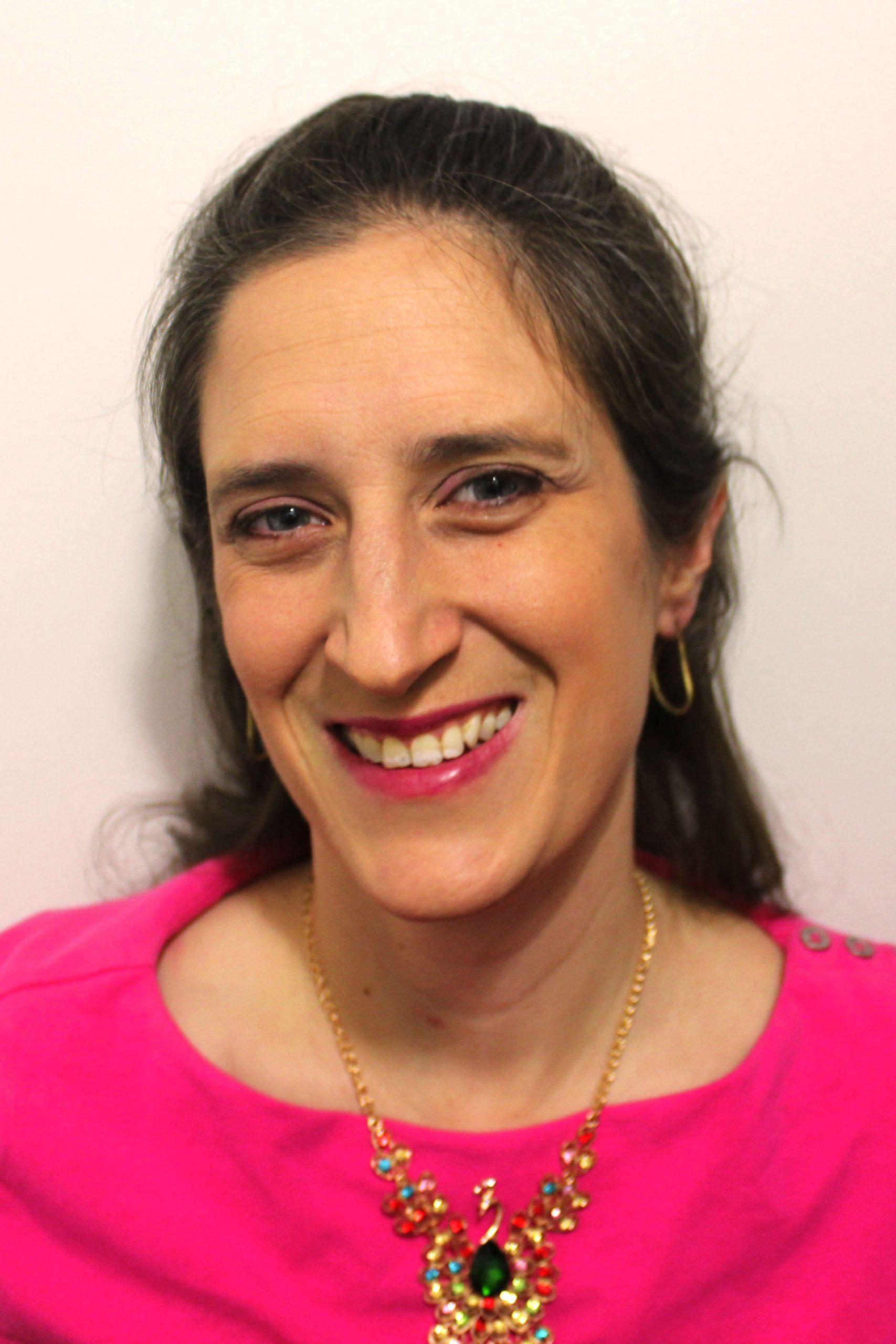ANXIETY & AMBITION: What Happens When You Land The Dream Job

This article is part of our Anxiety and Ambition series where we explore the hardships and the emotional ambivalence of having anxiety while also wanting to achieve big goals.

For the past four years, Chandi Gilbert has worked as a freelance writer and editor but there was a time she bounced around from job to job; looking for something that worked well with her personality and anxiety levels.
“Before becoming a freelancer, my career was all over the map. I was single with few responsibilities, which made it easy for me to pick up whatever jobs felt like the best fit. I’ve been a mad scientist, a loan officer, a tech support provider, an administrative assistant, and a training and development coordinator. The biggest question I had to ask myself before accepting each position was, ‘How stressful is this job, and how many people will I be working with?’ My jobs weren’t chosen based on the title, they were chosen based on my anxiety.”
The biggest question I had to ask myself before accepting each position was, ‘How stressful is this job, and how many people will I be working with?’
The Pros & Cons Of Working From Home With Anxiety
Gilbert, a self-proclaimed introvert, has found that working from home is a huge help in managing her anxiety, that previously plagued her work life.
“Freelance writing is a dream role because I can communicate solely online, from the comfort and ‘safety’ of my home. That said, it’s absolutely not without its stressors. In fact, it might be the most stressful career path I’ve chosen, but based on my comfort level, it’s a stress that I can manage (mostly).”

“As a freelancer, I write content for several boutique agencies, various clients, and I am a co-founder, editor, and writer at Geek Travel Guide. Beyond actual writing, however, I also have to be my own accountant, marketing agent, administrative assistant, and nutritionist. Being a freelance writer has its freedoms, but it isn’t void of certain responsibilities.”
My jobs weren’t chosen based on the title, they were chosen based on my anxiety.
Coupled with this freedom, as many other anxiety-riddled freelancers will attest, working from home has some real challenges, especially for perfectionists. Gilbert notes that she likes “to underpromise and overdeliver. When I can’t do those things, I tend to spiral into worry and depression. As a freelance writer, I need a lot of clients and a lot of work if I want to earn a paycheck. It’s exciting to nab a new client until you check your schedule and see that you’ll probably have to work 70 hours a week to finish everything on time.”
More anxiety follows these discoveries, which keeps Gilbert in that whirlpool of stress, anxiety, and depression, until something breaks.
“Often, anxiety makes focusing on my work difficult. I’m restless and even bored when I know I have thousands of words to write. Anxiety is insidious. You can tell the loud voice in your head to shut up when it makes you think you’re worthless. But anxiety is sneaky because it whispers quietly until your voices blend seamlessly.”
Beyond actual writing, however, I also have to be my own accountant, marketing agent, administrative assistant, and nutritionist. Being a freelance writer has its freedoms, but it isn’t void of certain responsibilities.
Managing Anxiety In Small Steps
Anxiety expert and director of psychological services at Brooklyn Minds, Rebecca Sinclair, Ph.D., says, “An important day-to-day skill for dealing with anxiety is breaking things down into manageable steps. When anxiety overwhelms us, it’s often because we have zoomed too far out and are imagining one small thing snowballing into an unmitigated catastrophe. Breaking down tasks into smaller pieces allows us opportunities for success which increases the sense of efficacy.”
“Anxiety might tell us, ‘You can’t get started because you’re too anxious,’ and wants us to wait for anxiety to go away before we can get started. But this is anxiety trying to rule our lives.
“Rather than waiting for anxiety to go down, ask yourself, ‘What’s one step I can take here even while I’m feeling overwhelmed?’ Maybe making the list of steps is that one thing you can do, but this can have a positive snowball effect.”

Gilbert applies this principle in her work life and personal projects through simple means. She has loads of Post-Its around her workspace, each one tracking her next projects, her upcoming goals. Using these Post-It notes helps her reduce anxiety levels by keeping immediate tasks in view and later projects tucked out of sight for the time being.
As a freelance writer, I need a lot of clients and a lot of work if I want to earn a paycheck. It’s exciting to nab a new client until you check your schedule and see that you’ll probably have to work 70 hours a week to finish everything on time.”
Sometimes You Have To Acknowledge Your Anxiety To Defeat It
Sometimes, accepting that you have anxiety is one of the most effective tools in coping with it. According to Gilbert, “Anxiety is sneaky, and it lies to me often. Now that I’m nearing my 40s, I’ve learned to simply say to it, ‘Hello old sidekick. You’re not serving any purpose today except to make me unhappy. I don’t accept this, but if you won’t go away, do your worst. I’ve already been to hell and back. It’s nothing I can’t handle.’”
Anxiety is insidious. You can tell the loud voice in your head to shut up when it makes you think you’re worthless. But anxiety is sneaky because it whispers quietly until your voices blend seamlessly.
Anxiety’s Impact On Your Dreams Doesn’t Have To Be Permanent
Like many others who deal with anxiety, Gilbert is challenged by the thought of planning so far ahead as having “dreams” beyond simplifying her life.
“Big picture, I would like to have a few high-paying clients, so I don’t have to keep track of so many house styles, editors, their wants and needs, and so on. This makes my brain feel cluttered. However, having three high-paying clients to replace them all would be a dream come true.”

Down the road, Gilbert has the hope of hosting a writer’s retreat in the Midwest. Stress and anxiety have gotten in the way of planning it and after announcing it the crowd of fellow writers, she had to pull back. She still holds to the dream and with the support of fellow writers eager to see it come to pass, it will happen.
Sometimes, accepting that you have anxiety is one of the most effective tools in coping with it.
In the meantime, Gilbert’s simply had to acknowledge and accept that sometimes this anxiety means some things get put on hold, and that’s okay. She’s still living a happy, successful life, working her dream job as a writer.
“It’s taken a long time to be okay with all the crap anxiety throws at me. Anxiety is an emotion just like happiness or sadness. Let the emotion be what it is. Sit with it. Don’t reject it or push it away. That only makes the anxiety lean into your harder. Ironically, if you let it be, let it complete its cycle, the waves of fear and stress become smaller and smaller. It may never go away, but you can co-exist with anxiety and still be a happy person.”
Do you have a story or experience to contribute? Apply here to be a contributor and indicate in your application that you’d like to contribute to this series.






